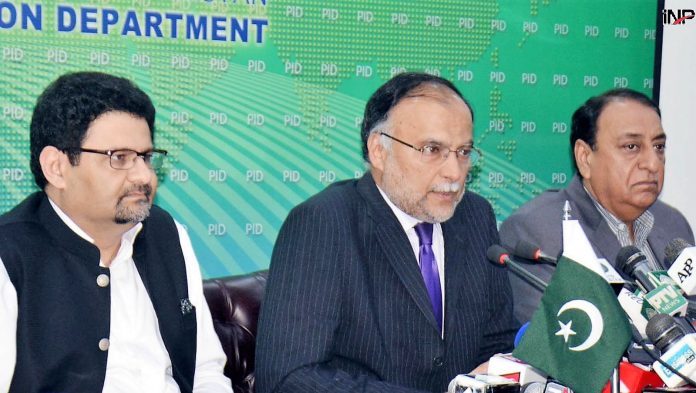LAHORE: The federal government on Thursday while unveiling the Pakistan Economic Survey (PES) announced that the GDP grew by 5.8pc in FY2017-2018.
Minister for Planning and Development Ahsan Iqbal and Adviser to the Prime Minister on Finance Miftah Ismail spoke on the economy’s performance during the year.
“Despite the various development constraints and bottlenecks faced by the government in the last five years, Rs47 billion has been allocated to higher education, 1,750 kilometers of motorways have been built and 11,000MW of electricity has been added to the grid,” said Ahsan Iqbal.
The Gross Domestic Product (GDP) growth during the last year narrowly missed the governments target of 6 per cent and stood at 5.8 per cent. The Planning and Development Minister insisted that the growth could have been more than 6 per cent if there had been no political turmoil in the country.
Last years GDP growth of 5.8 per cent is the highest in the last thirteen years and “has been helped by a strong performance in the agriculture, service and indistrial sectors,” added Iqbal.
The agriculture sector that grew by 3.81 per cent, benefitted from the availability of better quality seeds, fertilisers and pesticides and improved access of credit or finance to farmers and agriculturists.
Miftah Ismail, while speaking on the occasion informed that inflation during the July 2017 to March 2018 stood at 3.78 per cent, which is lower in comparison to 4.01 per cent in the same period of last year, fulfilling the government’s promise of containing the inflation rate within single digits.
During the nine months under review of the current fiscal year, exports increased by 12 per cent and imports have slowed down to 16.6 per cent as compared to 48 per cent at the start of the year. However, due to the rising import of capital equipment, the Balance of Payment remained under stress.
According to the PES, during July-March FY17-18, Pakistan’s current account deficit increased by 50.5 per cent and was recorded at $12.03 billion, on the back of a widening trade deficit and rising import bill.

























[…] Source […]